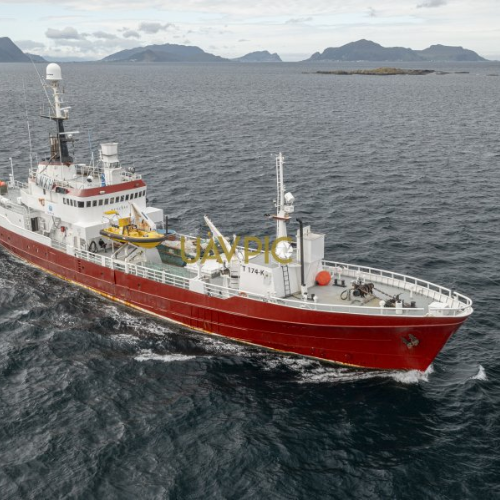A quiet ship sale in northern Norway almost turned into an international scandal. A Russian adventure cruise company, Morskaya Praktika, tried to secretly buy a Norwegian ship by pretending to be businessmen from Dubai. Their goal? To use the ship for Arctic expeditions to remote Russian territories like Novaya Zemlya and Franz Josef Land.
The ship, called Stålbas, is a 70-year-old vessel with a long and proud history. It was once used by the Norwegian Coast Guard and later for Arctic research. Since 2010, it has been owned by a company in Tromsø, Norway, called Barens Offshore. This company provides marine services in cold northern waters, helping with scientific work and seismic surveys.
But not long ago, Stålbas nearly changed hands. The buyers said they were from the United Arab Emirates and claimed they needed the ship to help sailboats in Greenland. Everything seemed normal. The paperwork looked right. The Dubai company didn’t appear on any international sanctions list, and there were no signs of a Russian connection—at least not on the surface.
That was until a Norwegian news outlet, the Barents Observer, started asking questions and contacted Signe Korneliussen, the Operator Manager at Barens Offshore.
A Cruise Company with a Hidden Agenda
The so-called buyers were actually connected to Morskaya Praktika, a Russian company advertising luxury expedition cruises to the Arctic and Antarctic. One of their cruise plans includes a long journey from Murmansk to Franz Josef Land and Novaya Zemlya. They use bold words like “Welcome on board!” and promise adventures aboard the Stålbas, even though they didn’t actually own it.
According to their online brochure, the ship features 14 cabins and top-tier rooms costing up to €20,000 per person. The route includes visits to several sites in the Arctic islands, including Moller Bay in Novaya Zemlya. But here’s the catch: Morskaya Praktika never had legal access to the ship. They had not bought it. Yet, they were already promoting trips using it.
The plan unraveled when the real owners of Stålbas—Barens Offshore—were contacted by journalists. Until that moment, they believed they were talking to legitimate buyers from the UAE. They were shocked to learn that the company behind the interest had hidden Russian ties.
They immediately halted the deal. No money had changed hands, and the ship remained docked in Tromsø.
Fredrik Wernhult, a shipbroker at Atlantic Shipping who handled the sale, said the Dubai-based company deliberately misled them. “We have our standards. And we are not allowed to sell any ships to Russians because of the sanctions,” he said. “We have today cancelled the deal.”
Deception, Sanctions, and Arctic Shadows
The truth emerged that the people pretending to be Dubai businessmen were likely acting on behalf of Morskaya Praktika. And they may have done it to avoid the rules banning ship sales to Russia.
Since Russia began its war in Ukraine, many Russian-owned ships and companies have been hit by strong sanctions. That means they are not allowed to buy vessels from other countries, especially ones that could be used in the Arctic.
To get around this, some Russian companies have created so-called “shadow fleets”. These are vessels bought using fake names, hidden ownership, or through countries with fewer restrictions. Dubai, with its global connections and looser checks, has become a hub for these kinds of activities.
The Russian company behind this, Morskaya Praktika, is owned by Konstantin Popov, a man with over 30 years of sailing experience. He is connected with several retired Russian Navy captains, including Lev Rodshtein, a former nuclear submarine commander, and Andrei Khalevin, who once commanded the missile cruiser Admiral Nakhimov.
Despite the scandal, Morskaya Praktika continues to organize expedition cruises. One of their rented ships is expected to make a port call soon in Barentsburg, a Russian town in Norway’s Svalbard archipelago. This cruise is arranged in cooperation with Arktikugol, a Russian state-owned company based there.
